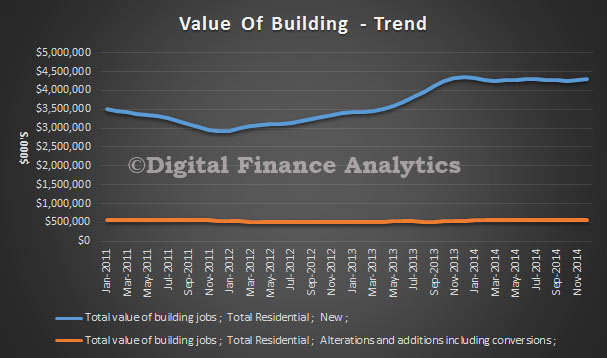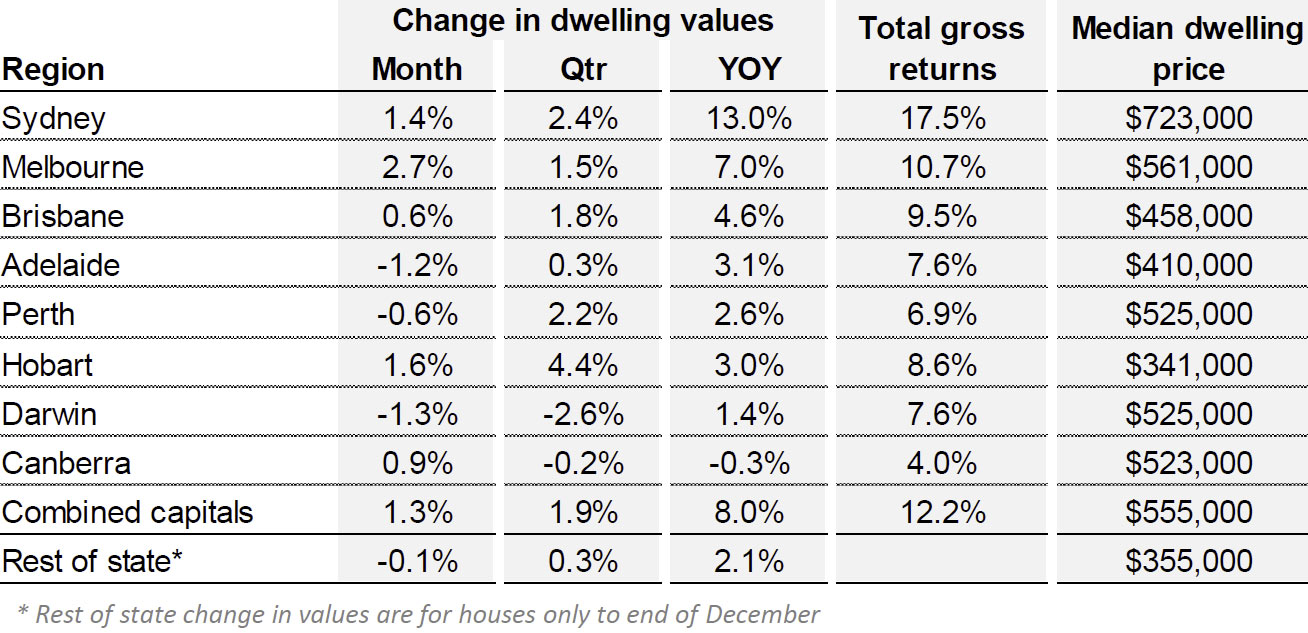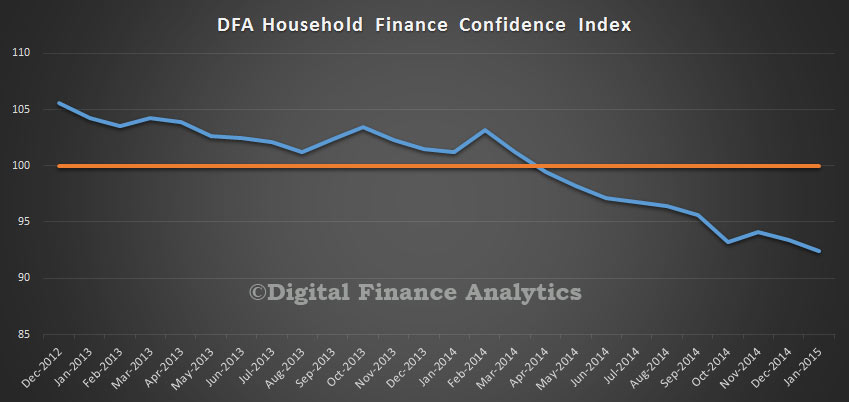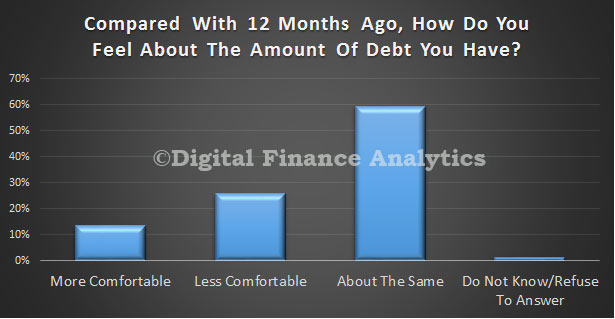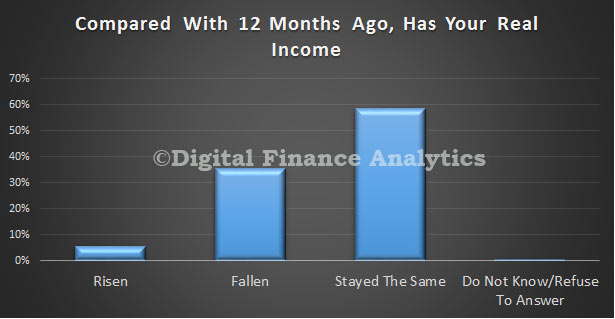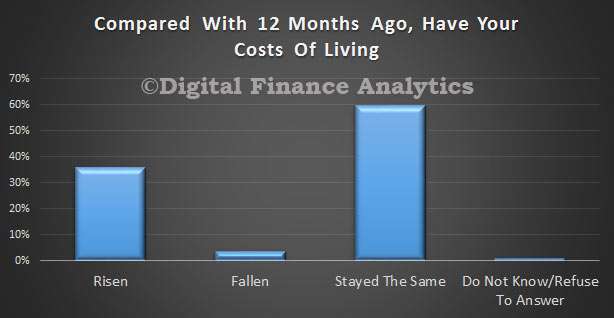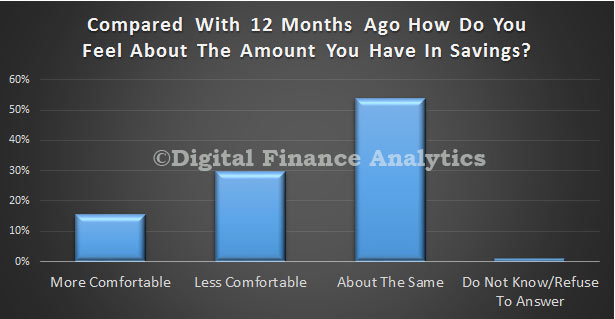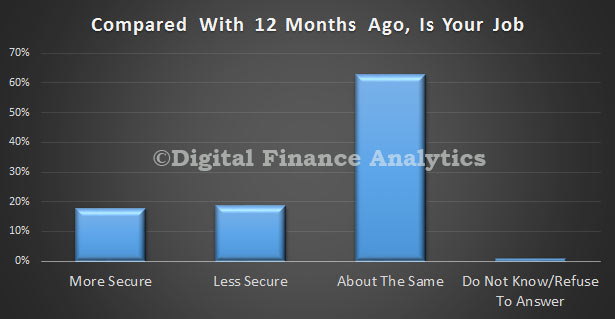The ABS released their building approvals data for December 2014 today. Another strong result, especially in the unit sector.
ABS Building Approvals show that the number of dwellings approved rose 1.3 per cent in December 2014, in trend terms, and has risen for seven months. the total number of new homes approved in December 2014. This is 3.3 per cent below the record reached in November, although still 8.8 per cent higher than in December 2013.
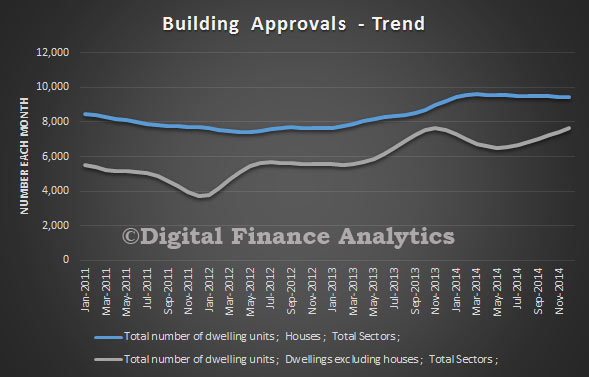
Dwelling approvals increased in December in Tasmania (4.8 per cent), New South Wales (3.2 per cent), Western Australia (0.9 per cent), Queensland (0.8 per cent), Victoria (0.6 per cent) and South Australia (0.2 per cent) but decreased in the Australian Capital Territory (2.5 per cent) and the Northern Territory (1.9 per cent) in trend terms.
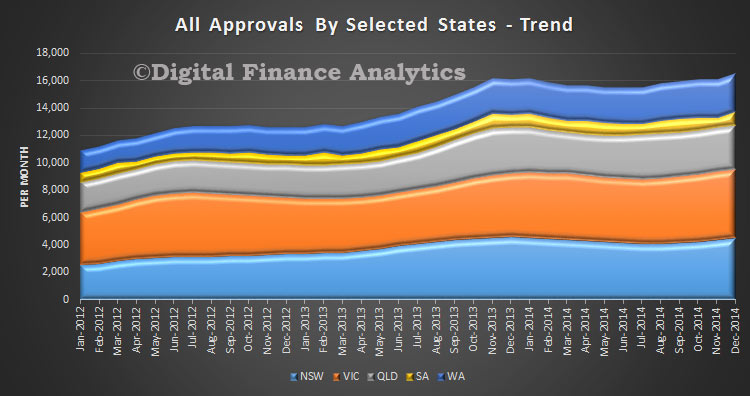 In trend terms, approvals for private sector houses fell 0.2 per cent in December. Private sector house approvals rose in Victoria (0.5 per cent) but fell in New South Wales (1.4 per cent), Western Australia (0.5 per cent), South Australia (0.4 per cent) and Queensland (0.1 per cent). There are significant state variations, with WA building relatively less units that VIC and NSW as a proportion of all approvals. Nearly 60% of approvals in NSW were for units. However, nationally, detached house approvals are overall quite consistent at around 9,500 approvals per month. The chart below shows the percentage mix by state of houses to all approvals.
In trend terms, approvals for private sector houses fell 0.2 per cent in December. Private sector house approvals rose in Victoria (0.5 per cent) but fell in New South Wales (1.4 per cent), Western Australia (0.5 per cent), South Australia (0.4 per cent) and Queensland (0.1 per cent). There are significant state variations, with WA building relatively less units that VIC and NSW as a proportion of all approvals. Nearly 60% of approvals in NSW were for units. However, nationally, detached house approvals are overall quite consistent at around 9,500 approvals per month. The chart below shows the percentage mix by state of houses to all approvals.
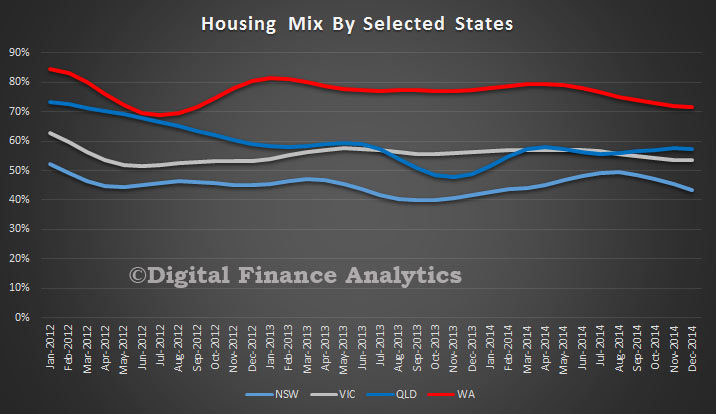
The value of total building approved rose 0.2 per cent in December, in trend terms, after falling for four months. The value of residential building rose 0.6 per cent while non-residential building fell 0.7 per cent in trend terms.

